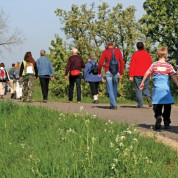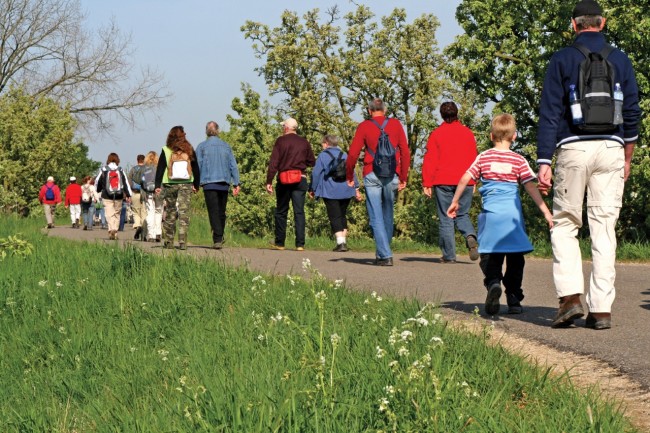
In 2010 a friend of ours, whom I’ll call Jed, went to Haiti with a group of high school students. The earthquake struck shortly after they arrived. Jed described what happened to those young people as a rapid coming of age, a growing up process that was visceral and immediate. It was so powerful that when they returned home their parents found it difficult to relate to them. They were not the same children who had left home a few weeks ago, and did not want to be treated as such.
I asked Jed what it was, in the whole experience, that catalyzed so much development in such a short time. “It was coming face-to-face with death,” he said. “That changes everything.”
We spoke about how many indigenous traditions take their children through an initiation process in which they learn to be a fully mature and participating member of their culture. These initiations are rigorous, and often dangerous, as they bring their young ones face to face with death.
Death is the great awakener. When we come close to it, all our priorities re-organize themselves. We are suddenly thrown into direct contact with what really matters. Many cancer survivors have described a similar thing happening when they were first diagnosed with cancer: there is shock, perhaps anger and grief, and then a radical connection with life. Life as it is, not as we hope it will be.
We don’t initiate young people in our culture; and most of us have never passed through a formal initiation of any kind. Our growing up process was not fully supported and was often not completed. So we wander around with younger parts of ourselves still very much alive, inside our psyche. These less than mature parts of ourselves are not very interested in life as it is. They kick and scream when things are difficult, when we are thrown out of our comfort zone. They resent setbacks, challenges, loss and heartbreak.
I have encountered these fragile, immature parts of myself many times. In spite of all the work I have done, they are still alive and well in me, as they were in my parents and grandparents. Intent on avoiding discomfort, disapproval and uncertainty, they resist the daily adventures, the moments of conflict, exposure, vulnerability. When things heat up in my life, the younger parts of me complain and protest. How to respond when I am face to face with these parts of myself?
There is no simple answer to this question. I keep noticing how easy it is to turn away from these insecurities, these frailties, to pretend that they are not really here. Or I can turn against myself, when I am less than I would like to be. Neither of these responses will help me to evolve into the alive, creative, fully functioning person the world needs.
I contact a stronger and clearer dimension of myself when I contemplate the immense challenges we are all facing as a kind of global initiation. Refugees, terrorism, climate change, technology, the arms trade, natural disasters, drought, nuclear weapons, mass shootings, racism, homelessness…One broadcast news analyst, speaking after a recent terrorist attack said, “It feels as if there isn’t that much we can do anymore, in order to create the kind of safety we believe that we are entitled to.”
It certainly feels this way to me. Someone referred to this time on earth as ‘the great unravelling.’ Joe Brewer contemplates “those moments of clarity about how big the forces of harm have become and that the darkness may last for the rest of your life and beyond.” A female diver spoke to the BBC about swimming beneath a five mile wide island of plastic in the ocean. She said it was “the most disgusting and degrading thing you can imagine.”
The evolutionary pressure on all of us is strong right now, whether we are conscious of it or not. The call for our maturity, our transformation, is very insistent, as we continue to avoid the demands of a true initiation. Most of us are still just stumbling along right now, hoping that somehow things will get back on track, that we’ll make it through. Before that happens, a lot of death and rebirth will need to take place. Indigenous initiations were fierce affairs; not everyone survived them. Our current global initiation is looking very similar. We are being called into a radically different relationship with life itself. The waters of chaos and transformation have broken loose; they have entered our living rooms, our kitchens and our bedrooms. This is a global crisis of huge proportions, and none of us will get away with ignoring it. It is prodding us into a growing up process that is really the only way we can love this world.
Arrive curious, without the armour
of certainty, the plans and planned
results of the life you’ve imagined.
Live the life that chooses you, new
every breath, every blink of
your astonished eyes.
– Rebecca del Rio (Prescription for the Disillusioned)
with love,
Shayla
2 Comments
Join the conversation and post a comment.



From the city closest to the Humboldt bus tragedy
From a school with families who had children on the team
From a family whose son was lost
to another family whose son was given life
To all our grief , sorrow and pain
How can we ever be the same again.?
This is the new life which has
chosen us
And yet the flowering plums on the street near where I live have never been so glorious. There is just enough grace in this troubled unravelling, enough fathomless love in the heart of disaster, that we say, “yes, I am here until I leave.”